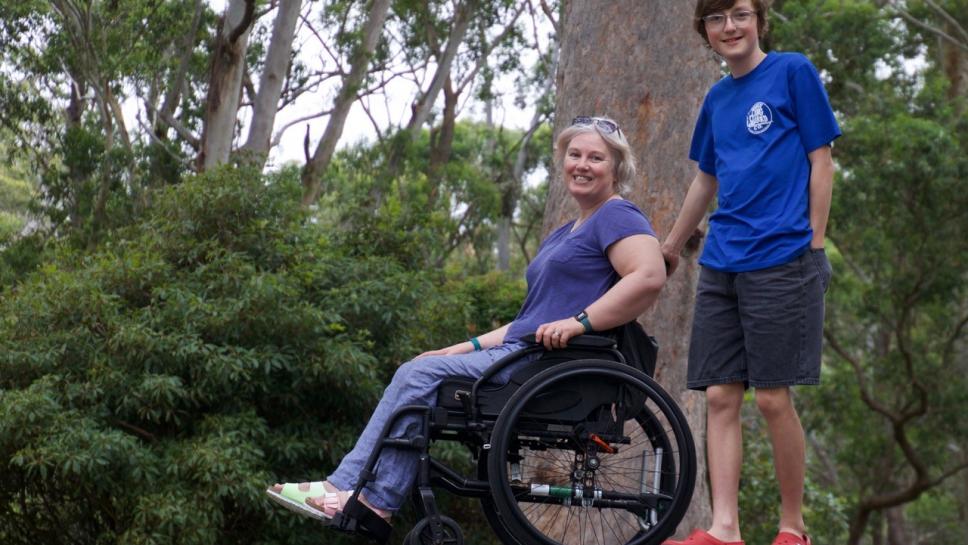
Having been diagnosed with limb girdle muscular dystrophy 25 years ago, I am used to managing my pain and fatigue. Yet the continued loss of mobility, of independence, of future plans, is an unusual form of grief that is a constant challenge to live with. I suppose my condition is partly what has shaped my career.
How it all started
I’ve been a counsellor for over 15 years and have been running my own private practice for eight years now. When I started, in 2016, it was unusual to be offering only online counselling sessions. But I knew this would be the best way for me to manage my pain and fatigue, and I was confident it would benefit many of my disabled clients. Of course, running meetings online is old news now.
Over the years, I learnt that a large amount of people in the disabled community want a counsellor to have lived experience of disability
Over the years, I learnt that a large amount of people in the disabled community want a counsellor to have lived experience of disability. Someone who has a level of understanding of what we go through on a daily basis. Due to my links with Muscular Dystrophy UK and a series I produced for Radio 4 called Walks Like a Duck about my life with muscular dystrophy, most of my clients have a disability or are a family member of someone with a disability.
I’m grateful that I get to help so many people, but last year I started thinking about all those with muscular dystrophy who haven’t had counselling but would benefit from it. Whether that’s because they don’t know how to find a therapist, or they don’t have the financial resources. Most people who contact their GP about mental health support will only be given a few Cognitive Behavioural Therapy (CBT) sessions. Although this can be useful, there is a limit to how much this form of therapy can help us deal with the unique loss we go through.
Working together with Muscular Dystrophy UK
I approached Muscular Dystrophy UK about offering therapeutic support groups. I wanted these to be specific support groups, bringing together people who were going through similar situations, for example young adults. I proposed a six-week programme where I would facilitate deep discussions with the groups around the emotional impacts of living with muscular dystrophy. From this suggestion, the pilot groups began.
Successful first therapeutic groups
At the end of 2023 we ran our first four therapeutic groups with up to six people in each group. We chose to run the groups for retired older men; middle aged men; women going through perimenopause or menopause; and young adults. During these sessions, we worked to build trust, communication, and openness to allow discussions around deep, emotional thoughts.
We received great feedback from the people attending the groups – several of which have continued to function as support groups after the official sessions finished. The older men’s group continues to meet weekly online, and the middle-aged men meet monthly. Every few months I’ll be joining one of the virtual meet ups to see how everyone is doing and encourage those deep chats around struggles, loss and pain.
We received great feedback from the people attending the groups
Our 2024 plans for therapeutic groups
We’ll soon be starting the next four therapeutic groups which will be for: partners and spouses of people with muscular dystrophy; newly diagnosed individuals; dads of children with the condition; and mums of children with the condition. Our newly diagnosed group will be starting first in April and you can register your interest for the sessions here. At the end of the six-week programme, we hope someone from each group will volunteer to coordinate communication with each other going forward.
Meeting at the England Information Day
I’m delighted to be attending the Muscular Dystrophy UK England Information Day on 9 March about along with several members of the therapeutic groups. I’ve booked a private room to run an hour-long session on the day. It will be lovely to meet everyone in person and have a quiet space to chat about how everybody is feeling. I’m hoping this will deepen the group’s relationship even further for their online sessions.
Muscular dystrophy can be such a challenging and, at times, lonely condition to live with. We all deserve to have an outlet for our emotions, and I hope these therapeutic groups help improve the mental health of many more people in our community going forward.
